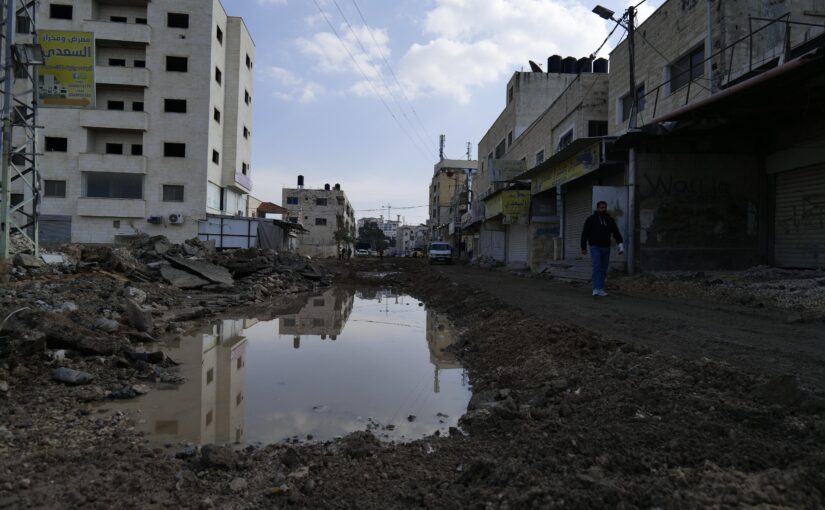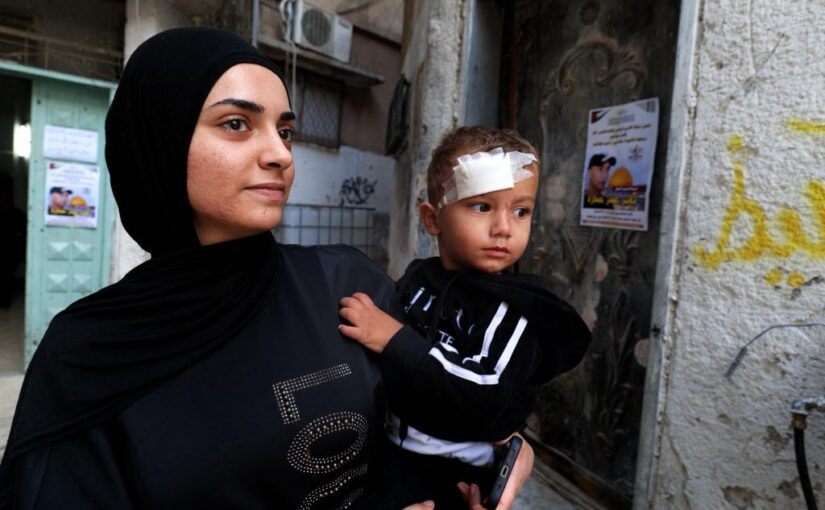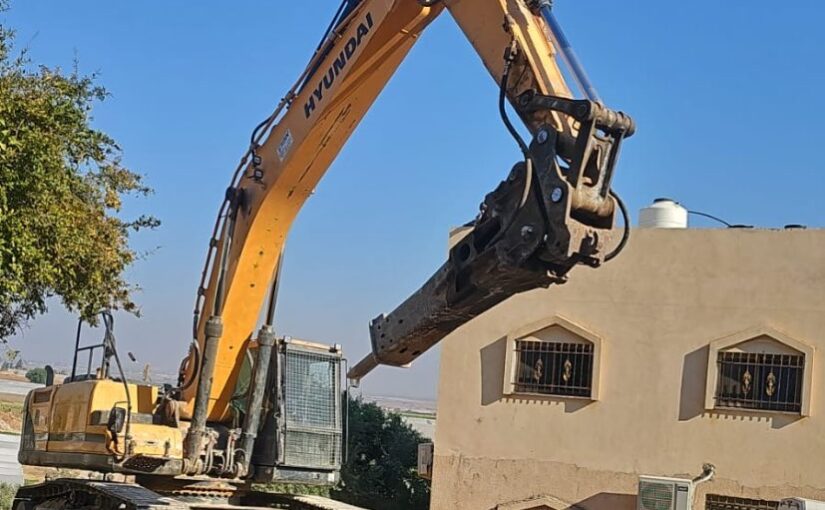-
Jenin: The most destroyed city
Jenin, West Bank | November 21, 2024 | By Diana Kwaelid When will Israel stop destroying cities and camps in the northern West Bank? The Jenin area has turned from an active city full of life and economy, into a destroyed zone where you can see wreckage in the town, and especially in the camp, […]
-
A Child Witnessed His Father’s Murder
West Bank—Tulkarm By Diana Khwaelid When will Israel stop spilling Palestinian blood in the West Bank? On November 13, Wednesday evening, an Israeli special force called Al-Yamam, accompanied by Israeli occupation soldiers, assassinated and killed two Palestinian youths during the siege of a house in the Ezbet Jarad area of Tulkarm. At about 6:15 pm […]
-
Home in Kardala Demolished by Israeli Forces
November 13, 2024 | Kardala, N Jordan Valley Today in the village of Kardala, in the North Jordan Valley, Israeli forces demolished a residential home. The short video below shows the demolition: A resident of Kardala village remarked about the context of the demolition: “Only a small number of people reside in this area, and […]
Action Alert An Nabi Saleh Apartheid Wall Arrests BDS Bethlehem Bil'in Cast Lead Demonstration Denial of Entry Ethnic Cleansing Farmers Gaza Global Actions Hebron House Demolition International law Israeli Army Jerusalem Live Ammunition Nablus Ni'lin Prisoner Ramallah Rubber-coated steel bullets Settlement Settlers Settler violence Tear-Gas Canister Video



